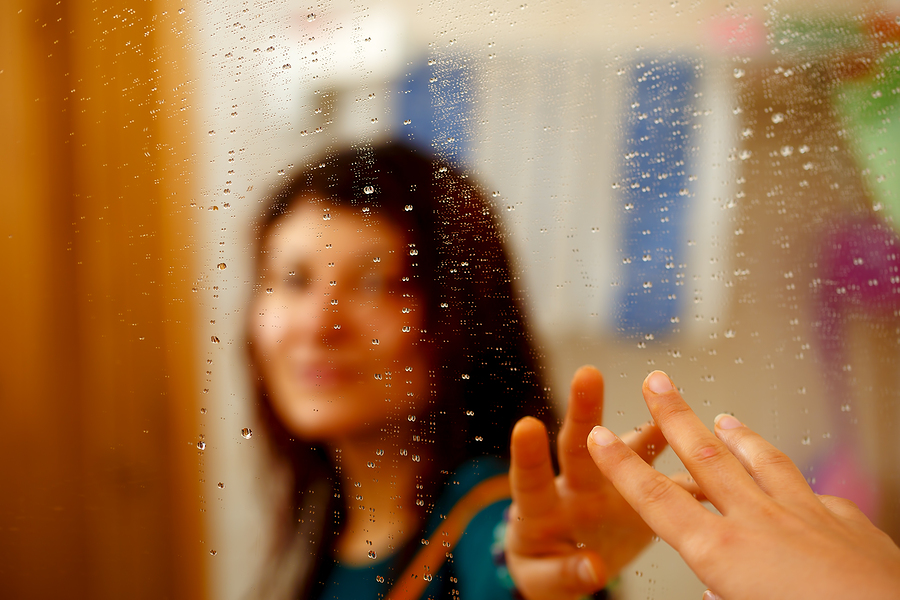Beyond The Looking Glass: Raising Our Daughters (and Sons) To Seek Inner Beauty
By: Shuchi Mehta
With content contributions from these magnificent moms: Dyuti Kharod, Ami Majmudar, & Revati Patel
“Aren’t you going to wear bangles with that? Your hands look empty!”
“You look tired, here, use my eyeliner.”
“Baby girls should wear paayal on their feet—how will everyone know she’s a girl?”
“I love your lipstick colour! It goes beautifully with your fair complexion.”
I could go on and on. If these conversations sound familiar, you must be a woman. Specifically, an Indian woman. At first glance, these statements seem benign, ordinary. Why wouldn’t they? The whole world talks to women about their appearance starting from when they’re just tiny, little baby girls (“hi there, pretty girl!”). I know I do. Meanwhile when we talk to little boys, our comments and questions often focus on a skill that they possess or an action they are doing (“wow, you kicked the ball so high!”). 
Translated into “kidspeak,” our daughters hear that clothes/hair/accessories should meet beauty standards if they wish to receive compliments. While our sons hear that they should focus on skills and continue to develop interests in order to be appreciated.
These seemingly innocent comments, especially when little girls hear them over and over again, begin to solidify a link between self-esteem and external elements (little boys also make this connection influencing how they talk to girls as well). In Lisa Bloom’s book, Think: Straight Talk for Women to Stay Smart in a Dumbed-Down World, she talks about how 15 to 18 percent of pre-teen girls wear makeup regularly.
At this tender age when interests are developing, friendships are forming, and a woman is embarking upon the journey to womanhood, she is consumed by the thought of how she is perceived.
After that, it’s a domino effect. When someone is constantly worried about what others think about her, she cannot live her life. This adversely affects her self worth, how she interacts with others, how she chooses a mate, how she chooses her career and everything in between.
Though Indian families customarily emphasize the importance of academics and extracurricular skill development, the macrocultural standard of placing beauty before brains doesn’t escape anyone. It permeates deeply into the lives of many Indian women and in turn, how we raise our own daughters.

In fact, many appearance-related rituals are deeply rooted in Indian tradition. For example, the bindi, which was originally meant to grace the seat of intuition (the forehead), has turned into a fashion statement.
Another frequent topic seems to involve fair vs. dark complexions with ‘fairness’ being the beauty standard amongst people of South Asia.
There are so many Indian women who are touted for their strength of character, their bravery, who do notable things or defy the status quo to help the world, who save lives, who defend their country, who sacrifice their lives in the aid of others, and who paint their insides rather than their outsides.
So why are our women and girls going gaga over celebrities, obsessing about their clothes, hair, and bodies? Why does Bollywood trump books? Why does primping outweigh personality? Why do we flaunt our jewelry and not our ingenuity?
These thoughts haunt me more than ever now that I have a five-month-old daughter’s future to worry about. Our daughters deserve better. So how do we fix it? As with most psychological shifts away from mainstream culture, this one has got to start from day one.
Here are some things we can do to help our daughters focus on their true selves and not the selves they see in the mirror.
1.Mommy, don’t focus on your looks – My mother was a bit unordinary in the looks department when raising my sister and I. I don’t ever remember seeing her spending too much time in front of a mirror. She rarely ever made comments about our looks or what we wore (unless it was inappropriate of course). She only wore makeup to events like family weddings. Despite this, my sister and I couldn’t escape gravitating towards the health and beauty aisle on a Walgreens trip with mom. I do believe, however, that my mother’s nonchalance to appearance is the reason we focused less on our Bonne Belle lip-glosses and more on our Biology textbooks. 
Health, wellness, and skincare are part of the self-love movement in today’s world. A little moisturizer, lip balm and eyeliner are as routine as brushing teeth. In this case, we can at least try not to be consumed by it. Ami Majmudar, an Ohio mom of 3, a teacher and accomplished classical dancer, says of her young daughter “she’s very aware when I apply make-up so we talk about how it is a ‘sometimes thing’.” If it’s the first thing on mommy’s mind, it’ll likely be the first thing on our daughters’ minds.
2. How do mommy/daddy respond to the topic of external appearance? – Inevitably, our children will broach the topic of external appearance. How we, as parents, respond becomes critical in this moment. When others superficially compliment my daughter (let’s be real, she is pretty darn gorgeous), I’m tempted to go on a soapbox about how I don’t want her to focus on external beauty…blah, blah, blah. However, the thing about creating a “counter culture” is that it’s easier and more effective to practice, not preach. Instead of rejecting someone’s well-intentioned compliment/statement, we can strategically add to it. “Yup, her recital dress is pretty, but did you hear that amazing rendition of Yankee Doodle she played…so proud of her hard work and practice!”
3. What are we talking about? – In the same vein as responding in matters of appearance, it’s important to be conscious about the conversations we have in the home. I’ve heard from more experienced parents that whatever goes on in the house and whatever the adults are talking about, gets publically displayed through their kids’ mouths. Those little ears are on us even when we think they’re not! Creating a less superficial microculture in our homes can help our kids dig deep in their own friendships and relationships. Some things we can try at home:
- Try to compliment one another on inner qualities or actions.
- Kids get excited about presents. Gift books, not clothes/accessories.
- Stay away from commenting on others’ appearances—or at least make positive comments.
- Talk about individual differences in people and how differences are good.
- Try not to impose our personal style preferences on our daughters. “Sometimes she’s Snow White…sometimes she’s a doctor” says Majmudar. “Don’t fixate.” Move on to what truly matters.
Initially, it may be a conscious effort. With practice, it becomes habit.
4. Take a cue from our rich history and culture – Historically, women have been held in extremely high regard in India. Dating as far back as the ancient Vedic period (pre-500 B.C.), stories and mentions of women such as Gargi and Arundhati speak to their intellectual height and education. A better-known female hero is Rani Lakshmi Bai who singlehandedly fought against the British army to protect the state of Jhansi in 1857. Indira Gandhi served as India’s 3rd prime minister starting in 1966 – a time when countries in the Western hemisphere did not even dream of women in such high posts.

Statue of Rani Laxmi Bai, Agra, Uttar Pradesh, India
Culturally, India oozes girl power as well. Hindu Goddesses such as Saraswati, Kali, and Lakshmi symbolize knowledge and wisdom, Shakti (strength), and prosperity to name a few. Female role models such as Sita and Draupadi from powerful literary epics such as the Ramayan and Mahabharat display dedication, courage, and strength of character.
So at story time, let’s give those Disney princesses a quick break and tell the tales of these ladies, their remarkable virtues and deeds instead.
5. Parents of boys are not exempt – In light of recent events, we are forced to introspect and see how misogynistic our world has become. To create a counter culture where women are respected, safe, have self worth, and see themselves outside of mirror land, men play a critical role.
This means that parents must teach their sons to cast-off negative gender stereotypes and to dig below the surface. If our sons do something that shows disrespect towards girls, it’s not enough to reprimand them. We must talk about why it’s wrong. Tell them the same stories of the above powerful women. Talk about how to show respect to girls and boys. Most of all, however, as parents of boys, we must model respectful relationships. How does dad interact with mom—with other women? Does dad help around the house? Are mom and sister’s opinions valued in the home?
As someone once said, “children are great imitators. So let’s give them something great to imitate.”
More about Shuchi

Shuchi Mehta, Staff Writer
Shuchi Mehta is a Speech-Language Pathologist by day and writer by night. She graduated with a Masters in Speech-Language Pathology from Northwestern University in Chicago where her unique experiences in outpatient pediatric clinics, schools, and hospitals paved the way for her decision to work mainly in pediatric settings. She has a passion for writing and has written lifestyle and cultural articles for Seattle Magazine, Seattle Bride Magazine, and California Wedding Day. She loves to write about all things, but particularly enjoys writing about her experience as an Indian-American and growing up biculturally. She is currently working on a children’s book using this particular theme. Shuchi’s other loves are her family, pretending to be a hiker and yogi but never having the time for either one, Hindustani classical music, reading, really good ice cream, Hot Cheetohs, and traveling the world with her super awesome husband.
Have a question for Shuchi? Write to her at columnists@masalamommas.com



There are no comments
Add yours